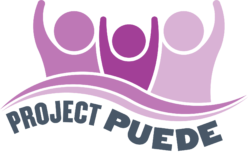Articles
Resources for teachers on the days after the attack on the U.S. Capitol
Jennifer Bradley
Communities of Practice in Online Learning
Jennifer Renn, Trish Morita-Mullaney, and Wayne E. Wright
In the face of a rapidly growing K–12 English language learner (ELL) population worldwide, many schools and school districts have struggled to provide training that supports teachers who work with ELL students.
Schools must keep serving English learners during pandemic, federal ed officials say
Schools that have switched to remote learning can’t give up on language services for their students learning English, the federal education department reminded school districts this week.
Supporting multilingual students’ learning in a time of school closures
Erick Herrmann
There is an old adage in education: “all students can learn.” While I agree wholeheartedly with the statement, I believe a more accurate statement would be “all students will learn.” Every human learns. We learn language, learn how to navigate the world around us, how to build relationships, how to feed ourselves, and myriad other skills. When it comes to school closures or extended student absences, what will students continue to learn?
Teachers strategize to keep English learners engaged during COVID-19 crisis
Shawna De La Rosa
Districts with more resources and technology are better prepared for this type of interruption. In Forsyth County, Georgia, where only 15% of students qualify for free or reduced-price lunch, the district can hand out hot spots for students who need them, and an existing multilingual messaging app helps keep parents informed.
Online Courses Help Teachers Learn Strategies for Supporting DLLs
Sarah Jackson
Mattie Mendez, executive director for Community Action Partnership of Madera County, runs Head Start Centers for children from migrant families in Madera and Fresno counties. Almost all of the children who come to these Head Start centers are learning two languages — their native Spanish (though some speak native dialects like Mixteco) and English.
How to Succeed in Distance Education
Tom Beeman
Tom Beeman, a contributor for Language Magazine, writes: “With the recent outbreak of the COVID-19 virus, many schools are closing their doors and shifting students and faculty to online study with little-to-no advanced notice nor training. I know one’s first reaction might be to panic or to get upset with administrators for doing this. But remember, they are following guidelines from the Department of Education as well as state and federal officials. You chose this profession because of your passion for imparting knowledge on students, so take that passion and turn it in to an opportunity to learn a new skill that will not only benefit students, but you as a well.”
7 Keys to Effective Online Learning
Carol Ribeiro
Online learning’s reputation has taken a hit in recent years amid reports of poor academic performance and concerns over lax regulation. While there is certainly some cause for concern, many of the problems center on for-profit providers who manage full-time virtual schools. The truth is that not all online learning experiences are of suspect quality.
NEW: Ensuring Continuity Of Learning and Operations
These resources are intended for school personnel and institutions of higher education to improve distance learning and the support of English learners and their families during school closures. All resources are free. Additional resources will be added, please check back periodically. To submit resources for consideration, please send to askncela.
